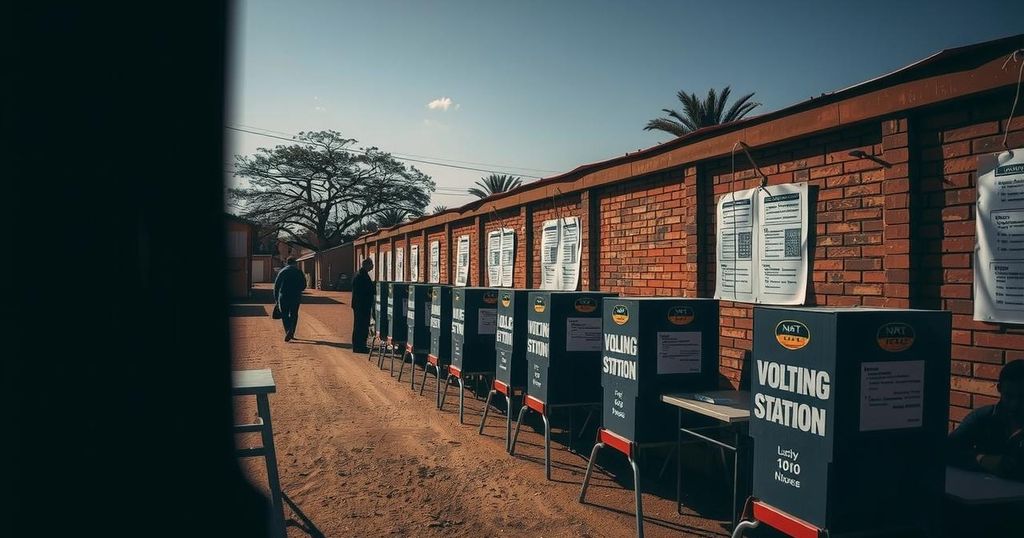Namibia’s Election Voting Extension Sparks Opposition Allegations of Fraud

Namibia has extended its election voting period due to ballot paper shortages, prompting allegations of illegality from opposition parties. Voters face significant delays, reflecting growing dissatisfaction with governance amid economic challenges. Vice President Netumbo Nandi-Ndaitwah is a key candidate in this contentious election, which raises questions about the electoral process’s integrity against a backdrop of increased public discontent.
Namibia has extended its presidential and parliamentary election voting period into the weekend due to issues such as ballot paper shortages, a decision met with allegations of illegitimacy from the opposition parties. The Namibian Electoral Commission announced that polling stations originally set to close on Wednesday will now remain open until Saturday night, as several locations had run out of ballots, which led to significant delays and dissatisfaction among voters waiting in lines.
The Independent Patriots for Change party has declared the extension unlawful, emphasizing concerns about potential electoral fraud. Amid this controversy, Namibia’s situation mirrors challenges faced by Mozambique, which is experiencing unrest following contentious election results that suggest vote rigging and has initiated violent protests against the ruling party.
Vice President Netumbo Nandi-Ndaitwah, a candidate representing the ruling South West Africa People’s Organization (SWAPO), aims to become Namibia’s first female president amidst a youthful electorate increasingly disillusioned by a lack of economic opportunities. Although Namibia is categorized as an upper middle-income country by the World Bank, it grapples with severe income inequality and high unemployment rates.
Electoral Commission chairperson Elsie Nghikembua acknowledged the logistical issues that prevented many voters from participating in the election, reassuring that ballot supplies would be delivered to polling stations that were still awaiting materials. However, many voters expressed skepticism about these assurances. For instance, registered voter Nangombe Shitaleni, frustrated by the lack of assistance, remarked, “I keep coming to the same place every day without being assisted. It’s like you are a mad person.”
With nearly 1.4 million individuals registered to vote in Namibia, these developments raise questions about the integrity of a political process that has been viewed as credible in previous elections, contributing to Namibia’s reputation as a stable democracy in a region often marked by electoral disputes and violence. Despite SWAPO’s longstanding governance since the country’s independence in 1990, the growing frustrations among the population underscore the changing political landscape.
Namibia, a country with a complex colonial history, became independent in 1990 after enduring significant struggles against apartheid. The ruling SWAPO party, recognized for leading the fight for independence, has maintained political dominance. Over recent years, however, the party has faced rising discontent due to high unemployment, specifically among the youth, and a socio-economic climate characterized by stark inequalities. The country’s electoral framework has historically been regarded as stable, yet recent vote-related logistical issues signal potential shifts in public trust and electoral integrity.
In conclusion, Namibia’s decision to extend the voting period reflects serious electoral challenges, including ballot shortages and allegations of wrongdoing from opposition parties. As Vice President Netumbo Nandi-Ndaitwah seeks presidency against a backdrop of widespread voter frustration and economic hardship, the outcome of this election could significantly influence Namibia’s political landscape and its future governance.
Original Source: apnews.com








